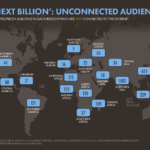On 11th of November, CEO of PCI Checklist Kıvanç Harputlu appeared on Financial Technology on Bloomberg HT hosted by Sefer Yüksel to discuss the increase in digital payments, more consumers turning to online shopping and finally changes in cyber security risks. Types of cyber attacks on e-commerce websites and their regional differences were also touched upon.
Kıvanç Harputlu shared some striking statistics, one being the 26% increase in overall digital payments in retail between January of 2020 until now. Although people had a chance to shop in stores during summer with Covid 19 restrictions somewhat decreasing, starting from October interest in digital payments started rising once again. Supermarket expenditures as a category made online had the highest increase with 89%. Tourism was one of the rare categories which showed a dramatic decrease in online payments but considering the travel restrictions both domestic and international, this figure comes as no surprise.

According to a study conducted by Statista, expected global annual compound growth rate for e-commerce is 8.1%. Turkey is the country with the highest expected growth with 20.2% with Argentina being a not so close second with 16% growth rate. Kıvanç Harputlu states that it would be improper to explain this high growth with only Covid 19’s effect, he draws attention to the continuous infrastructure efforts of banks, payment gateway providers and other vital players of fintech. But it is also important to notice that high volume of online payments brings trouble inevitably. Cyber criminals are quite aware of increasing online transactions which gives them more opportunities to steal credit card and personal data.

Another important data shared during the program was from Verizon’s Data Breach Investigations Report. According to this report, 91% of attacks aimed at the financial and insurance sector have the aim of obtaining financial data. This number reaches to 99% when we focus on retail which shows that for cyber criminals, obtaining financial data of consumers is even easier on retail than financial institutions themselves. This can be explained by the budget differences between financial institutions and small and medium sized e-commerce companies. E-commerce companies usually have less budget and staff to invest in cyber security which makes them alluring targets compared to well prepared financial sector.
November is especially important for digital payments since it is the month of great deals. Thanksgiving week, Black Friday and Cyber Monday are all in November and e-commerce sites gain most of their revenue this month while suffering from attacks and breaches. Kıvanç Harputlu points that banks, payment gateway providers and e-commerce companies all have to work together on cyber security so that they can avoid breaches.While the awareness is high on this issue, there still is a long way to go in order to diminish cyber attacks, says Harputlu.


